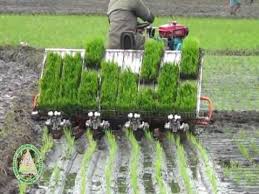The Minister/Counsellor of Denmark, Mr. Jacob Erikstrup, has advocated the need for governments’ nationwide to show greater commitment to farmers’ education as a strategic step towards improving their productivity and value-addition to the nation’s Gross Domestic Product (GDP) rate.
The minister pointed out that improved level of farmers’ education in Denmark had helped in transforming the country into one of the world’s leading producers of meat and milk.
He explained that given Nigeria’s natural endowments, the country promised a lot of opportunities for farmers, pointing out that if the farmers’ potential is well harnessed, it will lead to huge socio-economic benefits to the country.
Erikstrup explained: “But, Nigeria really needs to increase the education of her farmers. Experience has shown that a very high number of Nigerian farmers still practice farming based on what they inherited from their parents.
“In Denmark, for instance, for anyone to be a farmer, he or she must get the required education, otherwise, you are not allowed to be a farmer. So, for Nigeria to also be able to produce a large quantity and quality of agricultural produce, the government must give priority to the education of its farmers,’’ he added.
The envoy pointed out further that if Nigerian governments showed more commitment to farmers’ education, it would attract more young Nigerians to farming and help in addressing the growing problem of youth unemployment in the country
Erikstrup, who commended recent initiatives of the various tiers of governments’ commitment to grow the agricultural, maintained that farmers’ education would make the governments to increase capacity of farmers in crop and livestock production.
He said: “There are a lot of things that Nigerian farmers would learn and benefit from being educated, before becoming farmers. Currently, many Nigerian farmers are practicing farming based on what they learnt and inherited from their families.
“With the right education, these farmers will be able to optimise the use of improved seeds, improve production, apply fertiliser, practice organised crop rotation, as well as prevent pest and disease infestation,’’ Erikstrup added
According to statistical data produced by leading global agriculture-supporting organizations, including the Food and Agricultural Organisation, International Fund for Agricultural Development (IFAD) and the World Food Programme (WFP) (2013), showed that Nigeria had an energy intake of 1730Kcal and an average protein supply of 64g capita per day, requirements far below the 2500 – 3400Kcal minimum recommended daily intake per day.
Also, a researchconducted by the Global Food Security Index (GFSI) (2015) among the 109 countries puts Nigeria at the 91st position, with a score of 37.1 based on indices of affordability, availability, quality and safety.
These statistics indicated that Nigerians remained exposed to the risks of unbalanced diet and the associated nutritional deficiency symptoms.






